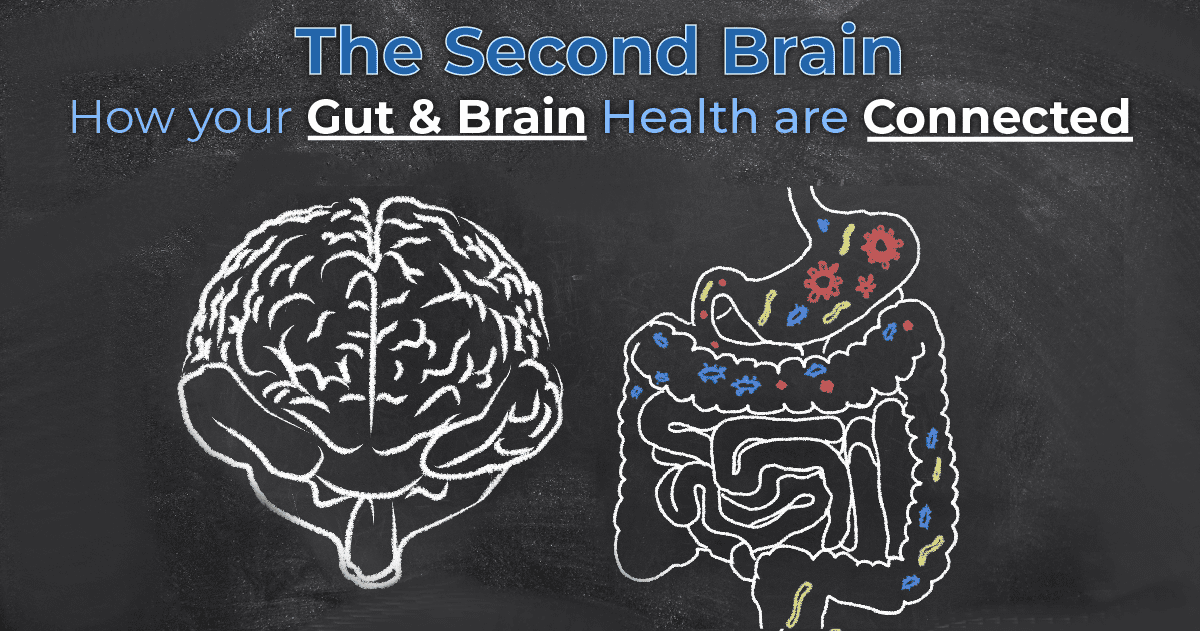CBD SALE: Get 25% off all CBD products + Free Shipping on orders over $150. Click here to shop deals.
How Your Gut Can Heal Your Brain


Your Second Brain
A healthy digestive system is more important than we’ve been led to believe. In fact, it is the key to well-being, the root of health. People are beginning to realize that if the gut isn’t working properly, nothing’s going to be working well. There’s a “second brain” in your stomach. It influences your mood, what you eat, the types of diseases you get, as well as the decisions you make. And you thought it was all in your head!
Understanding the Brain-Gut Connection
What exactly is the connection between brain and gut? The brain sends signals to the digestive tract through the sympathetic nervous system and the parasympathetic system. The sending and receiving of these signals play a big role in how effectively your body absorbs nutrients, how fast your body digests foods and the level of inflammation in the digestive system.
Dr. Michael Gershon, Chairman of the Department of Anatomy and Cell Biology at New York–Presbyterian Hospital/Columbia University Medical Center, an expert in the nascent field of neurogastroenterology and author of the 1998 book The Second Brain, explains that the phrase “second brain” doesn’t really mean the bowel can solve mathematical problems or write poetry by itself. Rather, what it brings to life is the fact that the entire digestive tract works as a single entity. Connecting these parts is an incredibly complex network of nerve cells, supporting cells, proteins and chemical messengers, which send messages back and forth, much like those found in the brain. In fact, the bowel contains about the same amount of nerves as the brain, and far more than the spinal cord.
In addition to being in charge of the digestive process, your gut lining is the core of your body’s immune system and defends you against such foreign invaders as viruses and bacteria. “It’s a very important barrier, as important as the skin,” says Dr. Gershon.
How a Healthy Gut Can Boost Mood and Impact Behavior
In a healthy gut, the good bacteria far outnumber the bad. But what’s going on in your head can affect the balance. “Emotional issues can help influence what lives in your GI tract,” says William Chey, MD, a professor of internal medicine at the University of Michigan Medical School. Being under a great deal of stress or feeling depressed or anxious could change the way your bowels contract and how your immune system functions, which in turn can change the type of bacteria in the small intestine and colon, he explains. Symptoms can include cramping, bloating, diarrhea, or constipation.
“The gut is a critical group of organs that we need to start paying more attention to,” says Steven Lamm, MD, the author of No Guts, No Glory. “Doing so may be the secret to improving our overall wellness.”
Cutting-edge research is currently investigating how the second brain mediates the body’s immune response; after all, at least 70 percent of our immune system is aimed at the gut to expel and kill foreign invaders.
In our quest to live a longer and healthier life, we often forget about the first link in the chain – our digestive system. And it’s only when this “second brain” begins to protest by sending pain and discomfort signals up to the conscious brain, due to either an infection or external factors, that we take action. Luckily, there are steps you can take before this happens, to ensure that your digestive tract stays healthy.
How to Keep Up On and Improve your Digestive Health
Pura Cleanse and Pura Cleanse II are gentle and effective herb and fiber drink mixes specifically formulated to help to detoxify, cleanse and rebuild your second brain; strengthening your overall well-being. For more information about Pura Cleanse and all the amazing benefits click here.






















